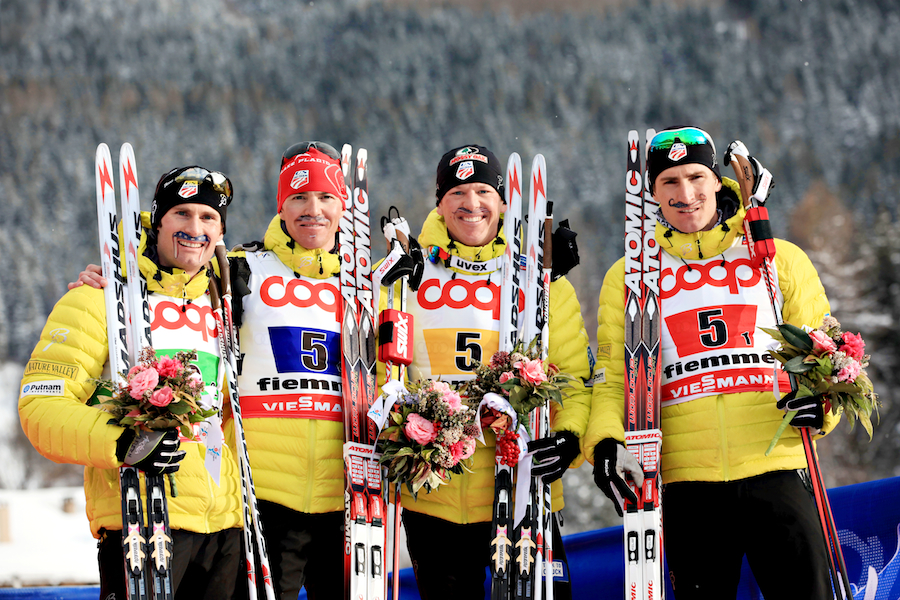
The ski jumps of Howelsen Hill are hard to miss as you drive down Lincoln Avenue in Steamboat Springs, Colorado. Naturally derived from the hillside overlooking the small ski town, the jumps have served as a springboard for many athletes looking to make their way to the Winter Olympics.
For the town’s locals, the jumps are a source of entertainment, training, or amusement. For one child, they were life saving.
A Childhood in Question: Finding Relief in Skiing
Growing up, Bryan Fletcher had no idea of what his future would hold. Diagnosed with Acute Lymphoblastic Leukemia just before turning three, the Steamboat Springs native was uncertain what life would be like while undergoing treatment for such a serious disease.
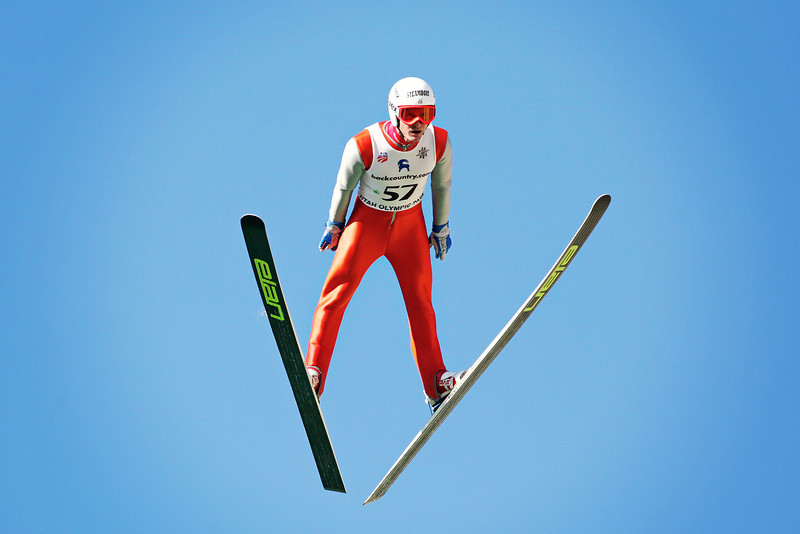
Despite the gravity of his situation, Bryan wanted to have the semblance of normal childhood. For the young child who had always “hit every bump and jump” on the side of a trail, that normalcy would take the form of a sport not so ordinary to the average American child: ski jumping.
“As a young kid I remember saying to my parents, ‘those are the biggest jumps in the world! I have to do at least once in my life. That would be so cool.’ Shortly thereafter my parents signed me up for a learn-to-jump program and from the first day I was hooked,” said Bryan in an interview. “I couldn’t get enough of it and every time I went off a jump I would just be running straight up to the next one.”
His start in the sport corresponded more-or-less with the start of his treatment. From the age of four, would take week-long trips to Denver to receive his chemotherapy and then hurry back to Steamboat Springs to ensure he got in as many jumps as possible. While he listened carefully to do everything the Doctors asked of him, jumping was the one thing with which there was no compromise. It was the main source of happiness for Bryan, and his parents just couldn’t tell him to stop.
“For two hours a day while I was training with my friends I was a worry free, happy, normal kid and that was all that mattered in the end.” – Bryan Fletcher
Bryan would continue to fight his leukemia for seven years, going trough several year cycles of chemotherapy and remission. But the ordeal wouldn’t end there. In the middle of his treatment he survived a stroke that he was fortunate enough to escape relatively unharmed. Finally, after serval years of treatment he went into sustained remission.
Through those seven years, Bryan also was looking for new ways to challenge himself, and that’s where cross country skiing came in. Once involved, he learned of nordic combined, and the rest was history.
Once in remission, his career in nordic combined took off and he made the Junior World Championship team in 2003, 2005, and 2006. As a result from his rise in the nordic combined racing community, he was named to the U.S. Ski Team in 2004 and competed in this first World Championships in 2007 in Sapporo, Japan. He would continue his World Championship runs with appearances in 2011 and 2013
But Bryan’s career wasn’t the only one born out of his disease.
While he made his trips back and forth between Denver, Bryan’s brother, Taylor, watched with admiration as his older sibling balanced the challenges of chemotherapy and joy of ski jumping.
Taylor soon joined a learn-to-jump program himself, instantly fell in love with the sport.
“He (Bryan) is pretty much the reason I got into it. I was like any other kid that wanted to follow their brother. From that moment I knew that’s what I wanted to do.” – Taylor Fletcher
His path was similar to that of Brian’s, earning 12th place at the World Junior Championships in 2009 and eventually becoming the highest ranked American in the 2013 World Cup standings in 16th.
The 2010 Olympics: Missed and Realized Opportunities
In the buildup to the 2010 Olympics in Vancouver Bryan found that the journey to the Olympics was harder than he had previously thought.
Historically a skillful jumper, the older Fletcher brother focused on his cross country skiing throughout his training in the 2010 season. Unfortunately, the highly competitive Olympic year ended up being one in which everyone on the World Cup circuit was jumping better than usual.
Struggling to crack the top 30, his results where below where he wanted them to be and he was unable to score world cup points, making his chances at competing in Vancouver slim.
“I was selected to start that world cup that season, knowing that if I didn’t come out and secure World Cup points that I might not be able to represent my country at the games because they would have to give someone else a shot,” said Fletcher.
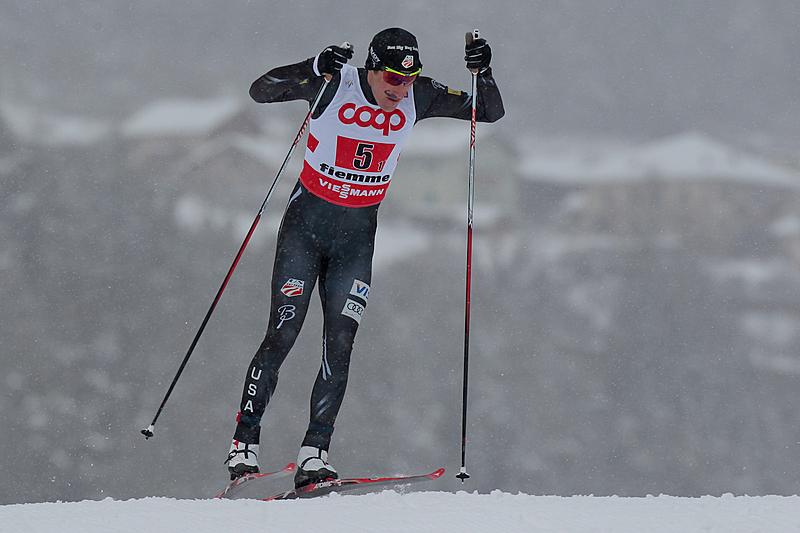
After sustaining an ankle injury, the U.S. Ski Team pulled him from World Cup competition and placed his brother Taylor in his stead. Taylor gave an excellent performance, scoring World Cup points and securing his spot on the Olympic team.
“With him having the World Cup Points and me not being 100 percent healthy it was a no-brainer for the coaches,” said Bryan.
Taylor had gone into the season expecting to only race in Continental Cups, but after he secured his first Continental Cup podium it was off to the World Cup.
While he was offered an Olympic spot, he never expected that he would actually be able compete in Whistler. However, after the historic second place by the American relay team in the 4 x 5 k event, teammate Brett Camerota decided to give his spot in the individual race to Taylor.
Aiming to have fun, Taylor went out and tried to ski his best but ultimately finished last in a field 45 skiers.
Taylor is feeling more confident this time around, having four years of World Cup experience under his belt.
“Going into this second Olympics, I have the experience from the first one. I know what to expect and I know what the field is like,” said Taylor. “It’s been four years competing at the world cup level. I know who is strong, fast, and who is a good jumper. I have a better idea of what the overall atmosphere is going to be like.”
Sochi: A Chance at Greatness
“This is something that I’ve been dreaming about for a while. It’s one of those thing that as a kid you dream of it but you’re like ‘man wouldn’t it be awesome if I could even get to a level even close to that.’ You start your goals with small steps. You start with ‘I want to go to Junior Olympics’ and then you work up and you get a little better and you’re like ‘I want to make Junior Worlds’ and then you’re like ‘I want to make the U.S. Ski Team.’ For me, as soon as I made the U.S. ski team the next goal was the Olympics.” – Bryan Fletcher
After being named to his first Olympic team, Bryan felt nothing but excitement and gratitude that his childhood dreams, which had materialized on the jumps of Howelsen Hill, were finally coming true.
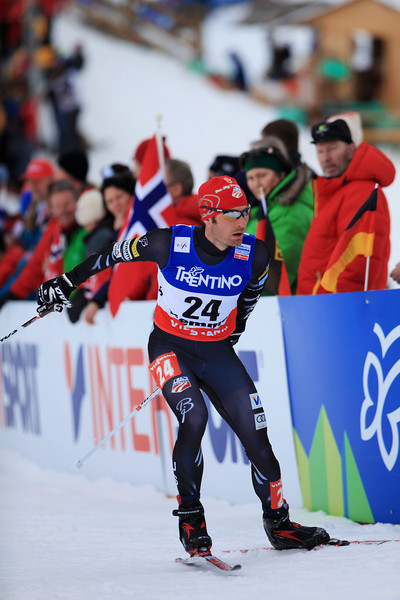
However, for Bryan and the rest of the U.S. Nordic Combined Team, the Olympic season didn’t start as planned. With weak results in the first weekend of World Cup racing in Kuusamo, Finland, Bryan knew that the team needed a boost of confidence and took it upon himself to help them arrive at the level of which they were capable of reaching.
“My only goal was to just keep everyone optimistic and prove to ourselves that we can be there and not to be too defeated. Even when the going is tough, and we think we’re out of it… we’re not,” said Bryan.
And rally they did. The U.S. team has continually been climbing the results all season with multiple top ten finishes since the Kuusamo World Cup, highlighted by Bryan’s season-best result with a fifth place at the Seefeld Triple in Austria.
Another factor that both Bryan and Taylor said has played a role in their team’s progressing strength, not only this season but in season’s past, is the leadership from veteran’s Todd Lodwick and Billy Demong.
“Those guys have more experience than anybody when it comes to the World Cup. Just having the steady experience and steady advice to follow has been amazingly helpful,” said Bryan.
Taylor, agreed, saying that both Demong and former teammate Johnny Spillane, played an essential role throughout his development.
“Bill and Johnny really took me in when I first got to the team. They helped me figure out the ropes of the world cup: what I can do, what I can expect, how to approach the competition and what not. I was a young guy getting my feet wet and not really sure what to expect,” said Taylor. “Even going back to when were 14 years old, Bill hosted these camps in Steamboat, Park City, and Lake Placid for the top juniors in the nation. He would take us out skiing and we’d get to train with Billy. That in itself was huge. Johnny was doing the same thing, and it gave you a good idea of what it takes to be a good combined skier and what I needed to do to get where I am at now.”
When it comes down to it, both Fletchers agree that the team, from the rookies to the veterans, is a supportive group.
“It’s easy to say that we’re a very solid and very close team. We are help each other as much as possible,” said Taylor.
With lofty goals for Sochi, the Fletchers are going to need as much support as possible from their team.
Both Brothers hope for a medal and know that if they perform to the best of their abilities they will have a chance of landing a place on the Olympic podium.

For Bryan, the plan is to continue his recent pattern of good results and perform at the same level in Sochi. “If I go out there and ski like I have been skiing, and jump like I have been jumping, then that’s all that I can ask for. Hopefully it will be good enough. Obviously the medals are a goal and I’m certainly going to be out there trying for one of those medals,” he said.
U.S. Nordic Combined Head Coach Dave Jarret was confident in Bryan’s position headed into Sochi. “Bryan had a disappointing 2010, didn’t get named to the team but since then consistently he’s been our leading guy,” said Jarrett at the U.S. Olympic Team naming on the 21st of January. “He used the disappointment to refocus reenergize: fifth overall in the triple and having awesome races and beginning to find the jumping form that he’s had in the last 2 or 3 years.”
Despite his wish for an individual medal, Bryan emphasized that as long as he delivers his best effort on the slopes of Sochi he will be content, regardless of his position.
Taylor, who has had mixed results this year, knows he can ski with the best but realizes that his jumping needs some work. “A medal would be fantastic, but I’ve had an up and down year. In skiing I’ve been one of the fastest guys all year long, I’m just missing that key aspect in the jumping that can really change things around,” he said.
In the hopes that he’ll be able to “deliver the jumps when it matters,” Taylor is using the next two weeks before the start of the games to practice his consistency and engrain the perfect technique to maximize his full jumping potential.
“Taylor is probably one of, if not the fastest guy on the World Cup. It’s a matter of him really letting everything go on the jump to put himself in a position to win the race,” said Jarrett at the team naming.
Individual aspirations aside, the Fletchers are putting the majority of their focus on the 4 x 5 k team event in which the U.S. placed second at the 2010 Vancouver Olympics and third at the 2013 World Championships in Val di Fiemme, Italy.
Despite their past successes in the team event, the Fletchers know that it will be difficult to medal with such a strong field in Sochi. Furthermore, Lodwick, who was the star of this year’s U.S. Olympic Trials, sustained a shoulder injury in France, bringing the veteran’s health and ability to race in the relay into question.
“I would love to see us get a medal in the team event. I think we’re very capable and it just takes a strong day from each of us to be in contention. It’s not going to be an easy goal to achieve. We’re setting our sights high there and we know that there’s a very real possibility that we may not come away with it.” – Bryan Fletcher
After such a successful in the 2010 Vancouver Olympics, in which the U.S. garnered 4 medals in the individual and team events, the pressure is certainly a weight of pressure on both the Fletcher brothers to repeat past success. Whether or not the Fletchers and the U.S. Nordic Combined Team will be able to rise to the occasion will be revealed in February, but the one thing that’s certain, is they will have each other’s backs no matter what.
Brothers: A Lasting Partnership
Through the stress and challenges that the Fletchers have faced in this Olympic year, they both know that they can always count on each other for support. Moreover, they also know that their strengths compliment each other.
Bryan has used his aptitude in on the jump to play a critical role in helping Taylor improve his jumping technique and capabilities. Conversely, Taylor, who has always been the stronger skier of the two, has aided Bryan in the advancement of the level of his skiing over the years by providing tips and training side by side.
“It’s the best partnership you could ask for. He knows everything about me so if he sees something that seems odd he let’s me know. He’s like ‘hey dude you’re a little to hyped for this, you’re a little to pumped up. Calm yourself down, breath. You can do it.’ He’s my best supporter and I’m the same for him.” – Taylor Fletcher
When talking to the Fletchers, their likeness is unavoidable: the mannerisms, sayings, and style of speaking are strikingly similar. What’s even more apparent, however, is their love for the sport which overtook them at such a young age.
Whether it was a way to escape the hardships of disease, or a way to follow in the footsteps of an admired, older brother, Bryan and Taylor Fletcher have demonstrated the impact a sport such as nordic combined can have on the lives of two small-town Americans. It’s what the Olympic spirit is really all about.
Whether or not their Olympic goals, individual or team, are realized in Sochi, it’s vey apparent that these two will be around to make their mark for a long time to come.
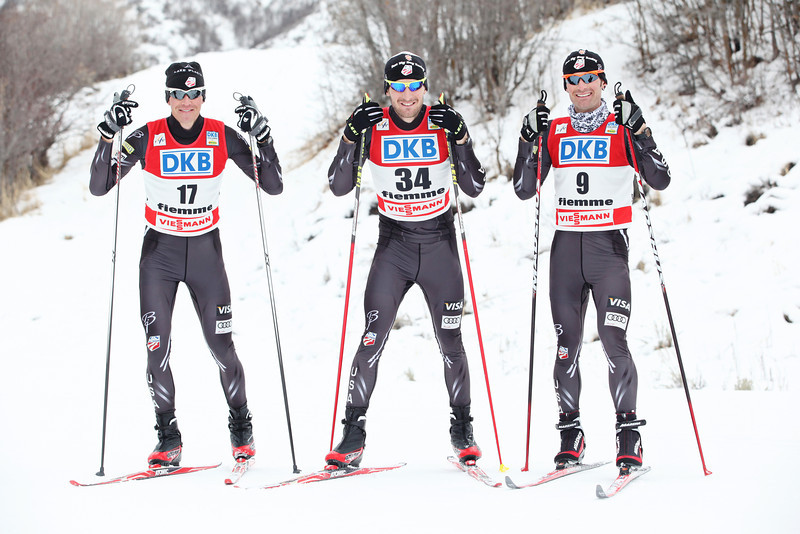
Lander Karath
Lander Karath is FasterSkier's Associate Editor from Bozeman, Montana and a Bridger Ski Foundation alumnus. Between his studies at Middlebury College in Vermont, he is an outdoor enthusiast and a political junkie.

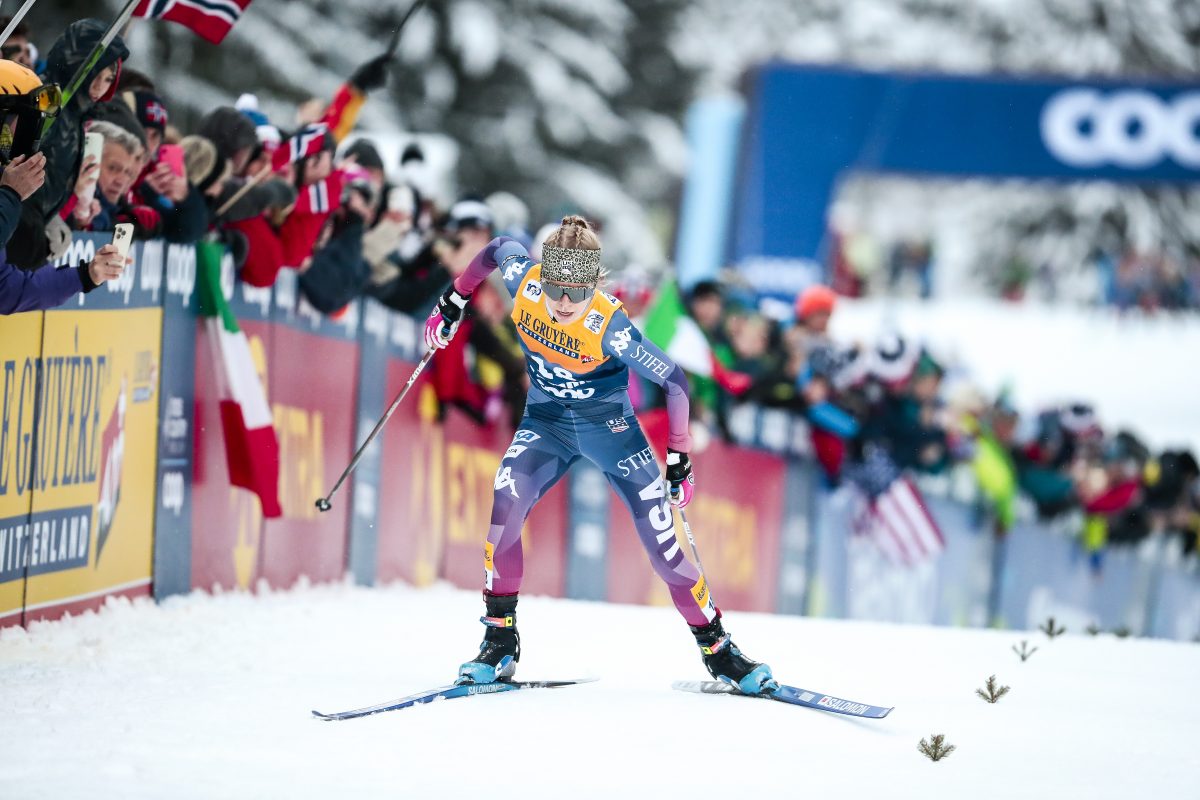

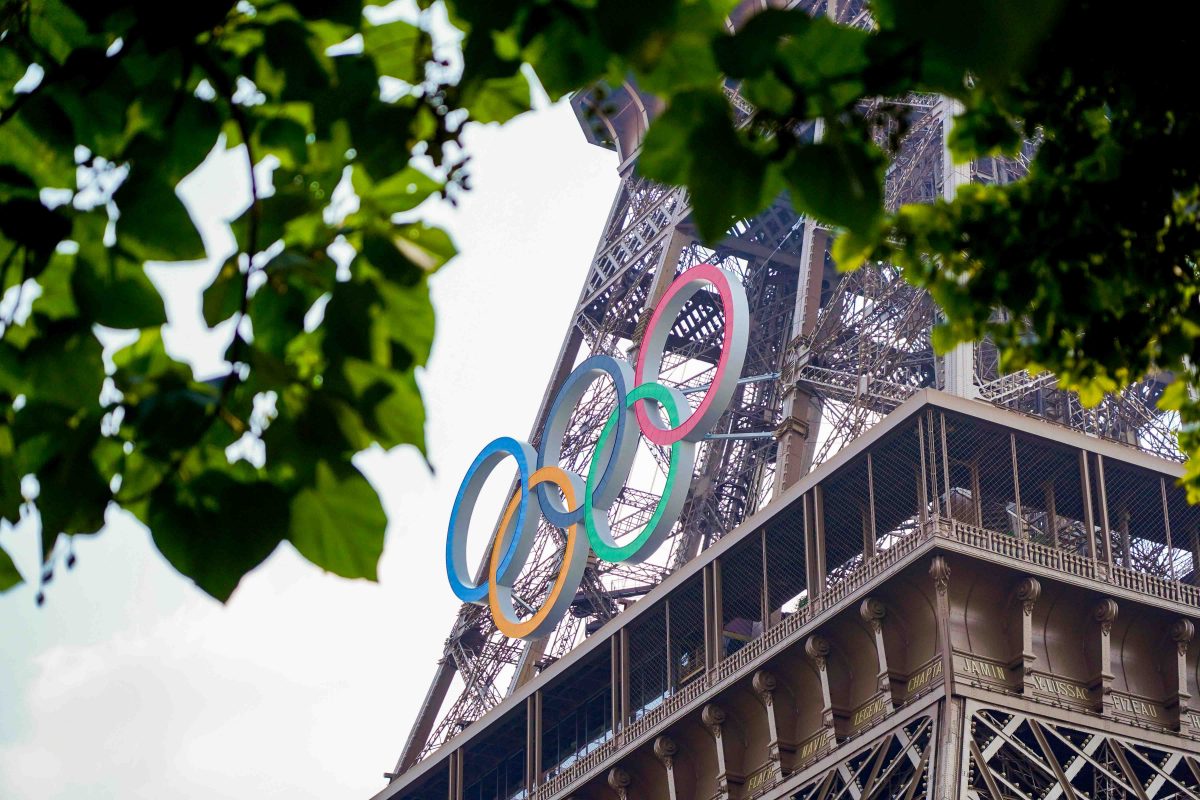
One comment
leelars
January 27, 2014 at 10:57 pm
Know that Leif Hovelsen is looking down and rooting strongly for “those Fletcher boys”, and Lodwick and Demong. He followed you all closely throughout your careers, viewing you as an extension of what his Dad, Karl, started on Woodchuck Hill at the beginning of the 20th century. In one of my last conversations with him he said; “you watch those Fletcher boys. They have something to show”.